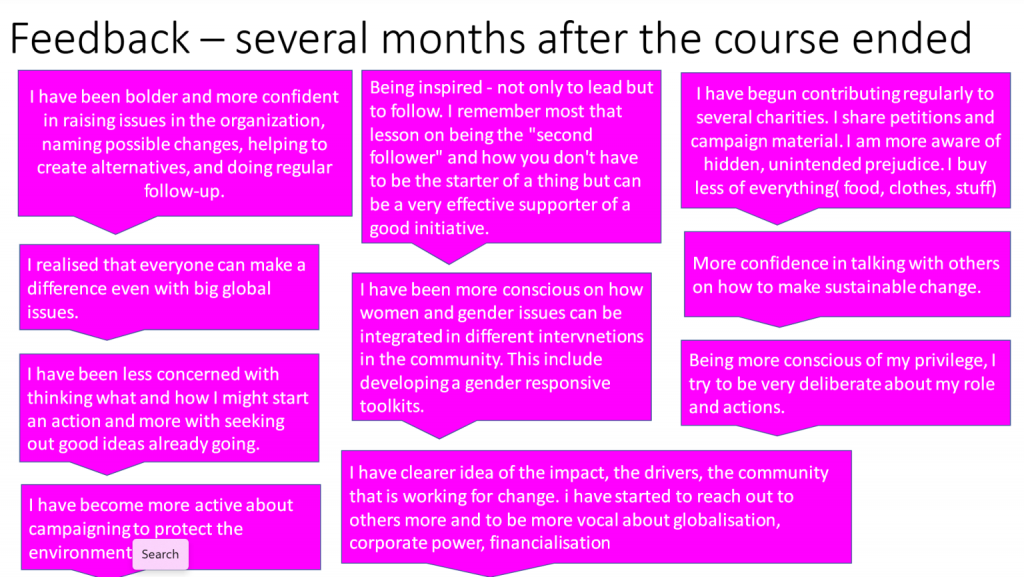

Duncan Green introduces the brand-new edition of an Oxfam course for changemakers that he helped to design. And you can now learn how to make change happen in Arabic, French and Spanish, as well as English…
One of my more enjoyable jobs during my later years at Oxfam was helping to design a MOOC (Massive Open Online Course) on the theme of ‘Making Change Happen’, drawing pretty heavily on How Change Happens, the last book I wrote for Oxfam. In its first iteration, the course did pretty well, with over 17,000 starting the course over several rounds (although lots of them didn’t finish it, as is the way with MOOCs).
So I was v happy when my Exfam colleagues got in touch to tell me Make Change Happen 2.0 has just gone live. The course is now on a new platform (in partnership with the UK’s Open University) and has been revised, updated, and translated. It will now be available in English, French, Spanish, and Arabic.

Rather than having to follow a fixed timetable, learners can now start the course at any time and take the time they need to complete the units with no deadline. Certificates are available on completion.
I’ve been thinking we should do something similar for our new Activism, Influence and Change programme at LSE – a bunch of free videos, podcasts and short readings that people can follow at their leisure, that summarise the essence of what we do in our more elaborate courses. Or should we just direct people to the Oxfam version? What do you think?
Oxfam did lots of evaluations, as is its wont – the slide I liked was when people were asked what difference it had made, after the course was fading into the distance. See below:

Sign up to do the course in Arabic, French, Spanish or English here.
Duncan Green founded the From Poverty to Power blog and, though he has left Oxfam, is still part of our blog team with the new title of Blogger Emeritus. He is a Professor in Practice in the LSE’s International Development department and Co-Director (with Tom Kirk) of the LSE’s Activism, Change and Influence programme and website. He can be reached at [email protected], or on @duncangreenlse.bsky.social. He doesn’t look at Twitter any more.
This piece is adapted from a post on Duncan’s shiny new blog about activism, influencing and change, hosted by the LSE, which we’ll be sharing highlights from here. You can read more from it and subscribe here.
Thanks for this Duncan. I think you should direct people to the Oxfam course. Much of its content has been informed by collective learning by Oxfam allies, partners and staff over the years. Also I imagine the Oxfam course may well need people to sign up to keep it viable so directing people there would be helpful.
Author
Baffled Ruth, that’s the whole point of the post, with the link in para 3 and lots of graphics. Did I miss something?
Ruth was responding to this bit “I’ve been thinking we should do something similar for our new Activism, Influence and Change programme at LSE – a bunch of free videos, podcasts and short readings that people can follow at their leisure, that summarise the essence of what we do in our more elaborate courses. Or should we just direct people to the Oxfam version? What do you think?”
Author
My bad, thanks for clarifying Bob, and apologies Ruth